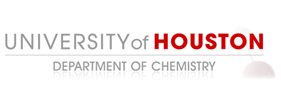Main Group Catalysis: Introduction.
The fields of organic and polymer synthesis rely heavily on transition metal catalysis to achieve selectivity, without consuming impractical reagents. Thus the development of improved catalysts, featuring broader substrate scope or higher selectivity, and new catalytic reactions are goals at the forefront of synthetic chemistry. Toward this end, main group elements offer a complementary platform of reactivity that could be a great asset to synthetic catalysis. In general, main group compounds are more coordinatively labile than transition metals, and thus as catalysts are less susceptible to coordinative inhibition. Thus main group compounds feature improved compatability with polar functional groups, valuable for the synthesis of medicinally relevant molecules and biodegradable polymers. Furthermore, alkyl-main group compounds are more stable to homolysis and β-hydride elimination than their transition metal counterparts. This property may enable living olefin polymerization with main group catalysts, useful for preparing olefin block copolymerization and end group functionalization. Yet main group catalysts are rarely used synthetically beyond simple Lewis acid or Lewis base catalysis.
This research program will develop new main group organometallic catalysts for polymer and organic synthesis. We are particularly interested in using the disctinct reactivity of main group to address longstanding limitations in transition metal catalysis. Projects will be available for students specializing in organic synthesis, polymer synthesis, or inorganic chemistry. Interested candidates at the graduate student or postdoctoral level should contact Robert Comito by email.
Professor Comito will start at the University of Houston in
